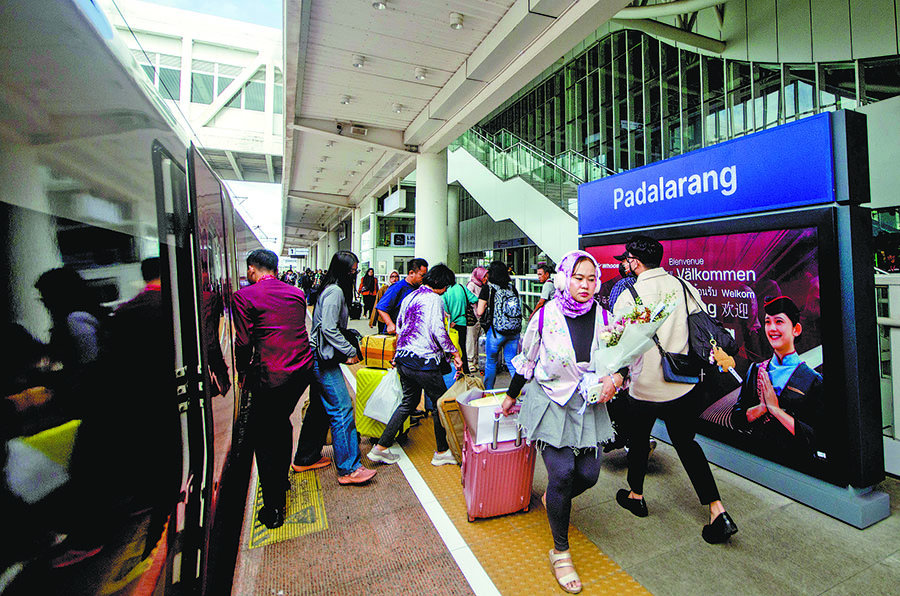Green tourism is just the ticket


Low-carbon tourism involves protecting tourism, promoting sustainability in the industry and generating tourism that supports local communities. "China is a classic example. It's at the forefront of sustainable tourism and reducing carbon emissions," Fernando said.
He added that many developed economies are adopting similar practices, understanding the importance of decarbonization not only from tourism but also from a national perspective.
Low-carbon tourism could be achieved by ensuring all tourist attractions, facilities and service providers cut their emissions. In so doing, tourism operators would also cut their costs, increase their profits and help improve general economic health, he said.
According to Yu from Hong Kong, to achieve low-carbon tourism it is important to reduce energy consumption and carbon emissions, which arise from transportation to sightseeing activities and accommodation. "Promoting eco-friendly transportation options, such as electric or hybrid vehicles, is definitively a consideration," Yu said. "Hopefully, we can see more sustainable accommodation options, such as green hotels and eco-lodges available in the future."
The environmental expert advocated practices such as reducing waste and promoting recycling. "Tourists should be encouraged (to show) responsible travel behaviors, such as reducing single-use plastics and respecting the local environments," he said.
Christine Loh, chief development strategist at the Hong Kong University of Science and Technology's Institute for the Environment, said the way tourists travel determines a large proportion of the carbon footprint. Flying is a high-carbon mode of traveling.
The US has a large airplane fleet because, she said, there are few options for long-distance travel by train. "However, China has built a large high-speed train system that allows for travel throughout the country by rail — a lower-carbon means of travel."
Besides, in China, the government encourages rail travel over air travel for shorter distances by reducing or even eliminating flights for shorter distances, Loh said. "Europe also has a good rail system, so there are real options not to fly," said Loh, who is a former undersecretary for environment in the Hong Kong SAR government.
Alex Lee Chun-ting, general manager of Miramar Travel in Hong Kong, said his firm is one of the first travel agencies to launch the concept of low-carbon tourism, and promote tours that feature high-speed trains in the Chinese mainland or Rail Europe in the European continent.
To achieve this end, "our itinerary tries to incorporate as much as possible" transportation, hotels, restaurants, etc, that involve low emissions, even airlines that adopt sustainable aviation fuels.
According to him, the itinerary design also includes participation in local sustainable activities such as city walks, strolls and cycling to experience the local scenery and culture while integrating tourism with nature.
Lee noted that railway tourism is a model of green tourism that enables sustainable development of tourism. "In the future, we will launch more high-speed rail tours and European railway tour groups to respond to green tourism," he said.
























